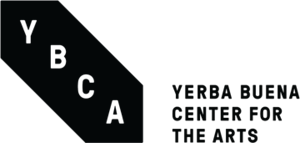Visualizing Citizenship
Seeking a New Public Imagination
March 10–June 18, 2017
701 Mission Street
San Francisco, CA 94103
United States
Hours: Wednesday–Sunday 11am–5pm
T +1 415 978 2787
hello@ybca.org
The US-Mexico border wall has hardened in tandem with the ascending privatization of public resources in the US, subordinating collective responsibility to serve individual interests, and consolidating economic power from the many to the few. In fact, when we think about xenophobia in the context of a pervasive anti-public agenda that has dominated American political discourse in the last years, the wall and its expansion comes to represent a white picket fence encircling a misguided idea of democracy as the “right to be left alone,” denouncing an ethical responsibility to co-exist with others, which is the foundation of the demos. In the context of these shifts, the border wall exists not only as a barrier against Mexico, far from the daily lives of most Americans, but it is invisibly reproduced in neighborhoods across the US, where public divestment, marginalization, racism, and inequality have continued to divide communities and institutions, enflaming urban violence and undermining the well-being and security of our own communities in dramatic ways.
Border regions like San Diego–Tijuana should not be marginalized as undifferentiated sites of danger but epicenters of urban and political creativity: a geography of conflict from which new more inclusive cross-border public imaginaries can emerge, based on integration and cooperation, not division and fear. Artificially divided ecologies like border zones can help us rethink the meaning of citizenship, beyond conventionally exclusionary jurisdictional terms and toward an expansive orientation grounded in shared regional practices, norms, interests, and aspirations that flow unimpeded across the border wall. We contend that the future of cities depends on a political leadership that recognizes interdependence and reaches across borders to produce new strategies of coexistence. It is precisely within the marginalized yet resilient immigrant communities flanking the US–Mexico border that such a conception of civic culture can emerge, marked by empathy, collaboration and shared aspirations.
In our current political climate, it is more important than ever for architects to take a position against inequality, against xenophobia, and against building border walls. Architects must decide where and when not to build. Let’s never become complicit with political injustice by helping to decorate and beautify the border wall. Beautifying the wall only naturalizes and legitimizes it, makes it somehow less intolerable, relieves public guilt, and delays its ultimate and just demilitarization, and a change in our public vision. Let the wall be a steel fence that stands as a naked manifestation of unjust political power. Let’s resist and find creative ways to transgress it.
In March 2017, Yerba Buena Center for the Arts in San Francisco invited architect Teddy Cruz and Political Scientist Fonna Forman to expand on these issues in the exhibition Visualizing Citizenship: Seeking a New Public Imagination.
Cruz and Forman have developed a political and architectural practice in San Diego to research urban conflict and informality as sites of intervention for rethinking public policy and civic infrastructure, with a special emphasis on Latin American cities. Working with YBCA’s Director of Visual Arts Lucía Sanromán and associate curator Martin Strickland, Cruz and Forman, in collaboration with graphic designer Matthias Görlich, produced an exhibition containing three case-studies, proposing that the Tijuana–San Diego border and the cities of Bogotá and Medellín in Colombia offer models of inclusive and collaborative governance that bring together top-down institutional commitments with bottom-up democratic activity and the transformation of urban social norms.
The Political Equator: Linking Border Checkpoints Across the World (2006–ongoing)
The Political Equator traces an imaginary line from the US–Mexico continental border across the world between the 30 and 38 degrees North Parallel, and discovers the world’s most contested borders. Cruz and Forman argue that these conflict zones are laboratories for public imagination, to radically rethink and create environmental, democratic and cultural strategies of inter-dependence.
The Cross-Border Citizen: Learning From Bogotá (2011–ongoing)
A series of seventeen posters synthesize the findings of the Cross-Border Citizenship Culture Survey realized in collaboration with Antanas Mockus, the visionary former mayor of Bogotá who coined the term “citizenship culture” as a behavioral and policy-based methodology of participatory governance.
The Medellín Diagram: Learning from Medellín (2012–ongoing)
The Medellin Diagram is an urban pedagogical project that visualizes the political and civic processes that enabled Medellín’s now-legendary transformation, demonstrating that it is not by emulating buildings and transport systems that cities across the globe can begin to approximate the inclusive urbanization that transformed this city. The key is to understand the complex processes through which institutions reimagined themselves, and cross-sector collaborations facilitated new interfaces between top-down and bottom-bottom knowledges and resources.
For more information visit www.ybca.org.
Visualizing Citizenship: Seeking a New Public Imagination is part of The City Initiative, a series of case studies by architects, designers, planners, and artists creating provocative work in the urban environment. It is curated by Lucía Sanromán, Director of Visual Arts, and organized by Martin Strickland, Exhibitions Associate.
YBCA Exhibitions 2016–2017 are made possible, in part, by Mike Wilkins and Sheila Duignan, Meridee Moore and Kevin King, The Andy Warhol Foundation for the Visual Arts, and The Creative Ventures Council. YBCA Programs 2016-2017 are made possible, in part, by The James Irvine Foundation. Additional Funding for YBCA Programs 16-17: National Endowment for the Arts, Adobe, Abundance Foundation, Gaia Fund, Grosvenor, and Members of Yerba Buena Center for the Arts. Free First Tuesdays underwritten by Directors Forum Members. Yerba Buena Center for the Arts is grateful to the City of San Francisco for its ongoing support.


